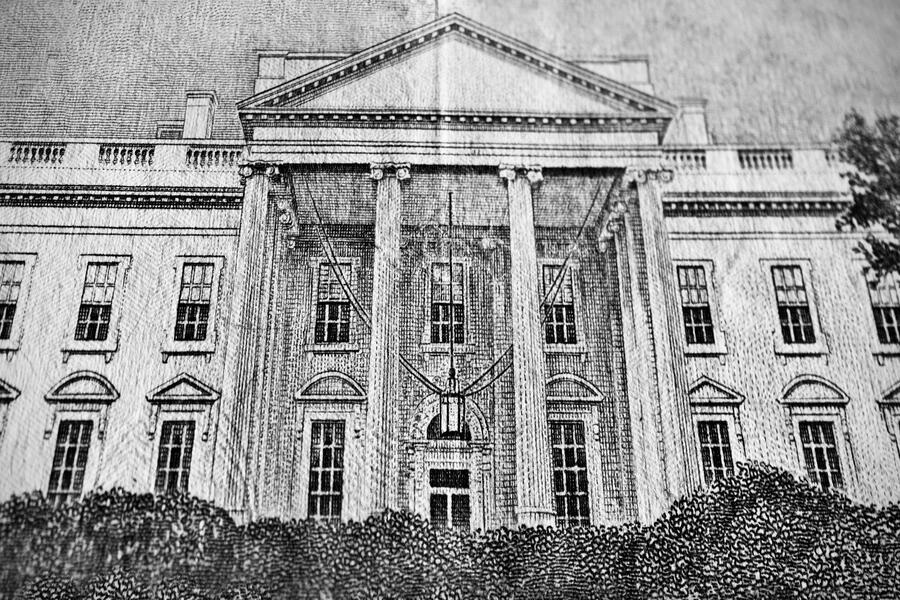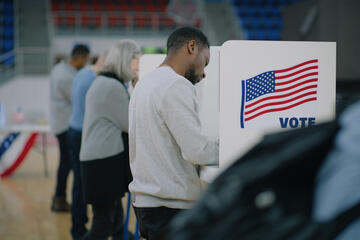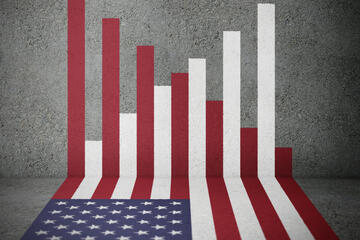- Name
- Johns Hopkins Media Relations
- jhunews@jhu.edu
- Office phone
- 443-997-9009
Donald Trump winning a second White House term didn't come as a surprise to Johns Hopkins historian Leah Wright Rigueur, who homed in on the election's social-historical context:
"The increasing polarization over the last four years, [combined] with an incumbent president stepping down in the middle of his campaign and a Black, southeast Asian woman becoming the nominee for president and only having 107 days to prepare—Kamala Harris was running an uphill, underdog battle," said Wright Rigueur, an associate professor at the university's SNF Agora Institute.
Wright Rigueur joined panelists from both sides of the political divide on Nov. 7 to address the possible effects of the election during Johns Hopkins University's virtual event Insights and Impacts: Post-Election Debrief.
Video credit: Hopkins at Home and the SNF Agora Institute at Johns Hopkins University
Alongside Wright Rigueur, panelists included Soren Dayton, director of governance at the Niskanen Center, a non-partisan think tank; Lilliana Mason, associate professor of political science at Johns Hopkins; and Eugene Scott, host of the political show Axios Live and a fellow at Harvard University's Kennedy School Institute of Politics.
Amy Binder, a sociology professor at Johns Hopkins, introduced the panelists, and Steven Teles, a Johns Hopkins political science professor and a senior fellow at the Niskanen Center, moderated the Hopkins at Home event, which was free and open to the public.
Here are seven takeaways from the conversation:
Economic worries mattered.
"We currently have the best economy in the world within the United States, … but there was a real disconnect between how the economy works in theory and on paper [and] how people were feeling it in their day-to-day lives," Wright Rigueur said.
Harris spoke about increasing wages and making home-buying more affordable, but her message didn't break through, Wright Rigueur said. Additionally, "the Biden administration very rarely touted their economic accomplishments, … their climate change accomplishments, … [and] their infrastructure and even border control and immigration [accomplishments]," she said.
Trump attracted new voters.
"One of the things [Trump] was able to do quite effectively was create a multiracial, multi-ethnic coalition of grievance populism that resulted in a powerful show at the polls," Mason said.
Trump received more votes from Latino residents than any other Republican presidential candidate in history, and he also made notable inroads with Black voters. "But in specific areas, particularly in battleground states, Trump doubled his percentage of support among Black male voters," Mason said.
In Dearborn, Michigan, which usually overwhelmingly back Democrats, as many as "45% of Muslim residents voted for Donald Trump, 33% voted for Jill Stein, and support for Kamala Harris [dropped to an unprecedented] low 20s," said Wright Rigueur, who attributed the shift among Muslim voters to the Biden administration's handled the Israel-Hamas conflict in Gaza.
Information inconsistencies contributed.
Harris made women's reproductive rights a focal point of her campaign, but Trump didn't discuss the matter much, Mason said. When he did, he told audiences he wanted individual states to make the decision. It didn't help that "a lot of the news sources Republicans tend to consume weren't saying anything about the threat to abortion access or rights," she said.
Wright Rigueur cited another example: the stimulus relief bill passed by Congress at the end of Trump's first presidency. Trump wanted to veto the bill "but later had no choice but to sign it into law," she said. He then decided to put his name on the checks. "Everybody laughed and [thought] it was arrogant, but people remember those checks and say, 'Donald Trump gave me $1,200.'"
What they don't remember, she continued, is the second round of $1,200 relief checks sent by Joe Biden. Why? Biden didn't print his name on the checks—he followed standard practice and had the Secretary of the Treasury sign them.
Results reflect a global trend.
In elections worldwide, incumbent candidates are losing, and the Harris defeat is yet another example, Mason said.
"In response to inflation or to the trauma of COVID, the whole world is still trying to process fear and uncertainty," Mason explained. "When [people] are uncertain, they tend to go toward a strongman" or anti-establishment leader who isn't the incumbent.
Similarly, fear and uncertainty have fueled what some panelists called "an anti-institution movement"—that is, a growing distrust in the government agencies, universities, schools, and medical systems entrusted to take care of, educate, and advance society.
"Institutions have different rules than rogue actors or extremist groups," Mason said, "and they're being scapegoated because they don't really fight back—they have to obey their own rules about inclusion and diversity and freedom of speech and pluralism."
Political parties shifted.
The Republican base is now largely made up of the working class, panelists said.
"The Democratic coalition today is massively, disproportionately represented by professionals, university professors, experts, [and] all of those people who, to some degree, are the enforcers of propriety," Teles said.
The business community used to be an "anchor tenant" of the Republican Party, Teles added, and it remains to be seen whether "Trump will just accept that a lot of business is going to leave the Republican Party, and that they'll pick up enough working-class party voters to be OK with business [primarily] ending up in the Democratic Party."
According to Dayton, "if you are working in a high-skill information industry, [you're likely] going Democrat fast. If you're in an extractive industry [such as] agriculture and mining, you're going to have strong reasons to like Trump."
Trump's style remains controversial.
Panelists brought up concerns about Trump's unorthodox style on and off throughout the conversation. "I'm of the firm belief that one of the reasons Trump did as well as he did, compared to 2020, is because he's not on TV every day," Scott said. "If Trump continues being who he was, … I think people's tolerance for decency—or indecency, I should say—will be tested."
Nevertheless, many voters overlooked Trump's idiosyncrasies to cast a vote for him anyway.
"The reality is that too many voters are far less concerned about that than they are about their rent going up, the cost of X going up, higher education being incredibly unaffordable, and so many other issues affecting voters' day-to-day," Scott said.
Trump's agenda and power are still up in the air.
Just because the Republican Party swept the Senate and is likely to narrowly control the House doesn't mean Trump will have unlimited power. As Scott said, "the president has put forward an agenda and ideas, and he has said some things he'll do, but the reality is that he's not a king."
Dayton said much or some of what Trump campaigned on likely won't actually happen. The first Trump administration wanted to cut NSF funding, for example, but our "Republican-led Congress gave [the funding] 20 to 30% increases every year."
"I have trouble seeing a world with massive cuts to science because we know that's a source of growth, and we've seen those budgets maintained across administrations," Dayton said. "All of these people understand—and I put J.D. Vance at the top of this list—that research is a massive driver of economic growth and opportunity."
Scott said he knows many people are scared right now, including his students at Harvard, who expressed alarm after the election. "I encourage people to not assume the worst will happen every single time," he said, adding that Trump tried to overturn the Affordable Care Act during his first administration, but it didn't happen.
"There is not a single president you can name who achieved everything he campaigned on, not just because of his political opponents but also because of people within their [own] party, and because the reality of making certain things happen is not as easy as giving a speech saying you're going to make something happen," Scott said.
Johns Hopkins University is a 501(c)(3) not-for-profit institution that does not endorse or oppose any candidate for public office.
Posted in Voices+Opinion, Politics+Society










